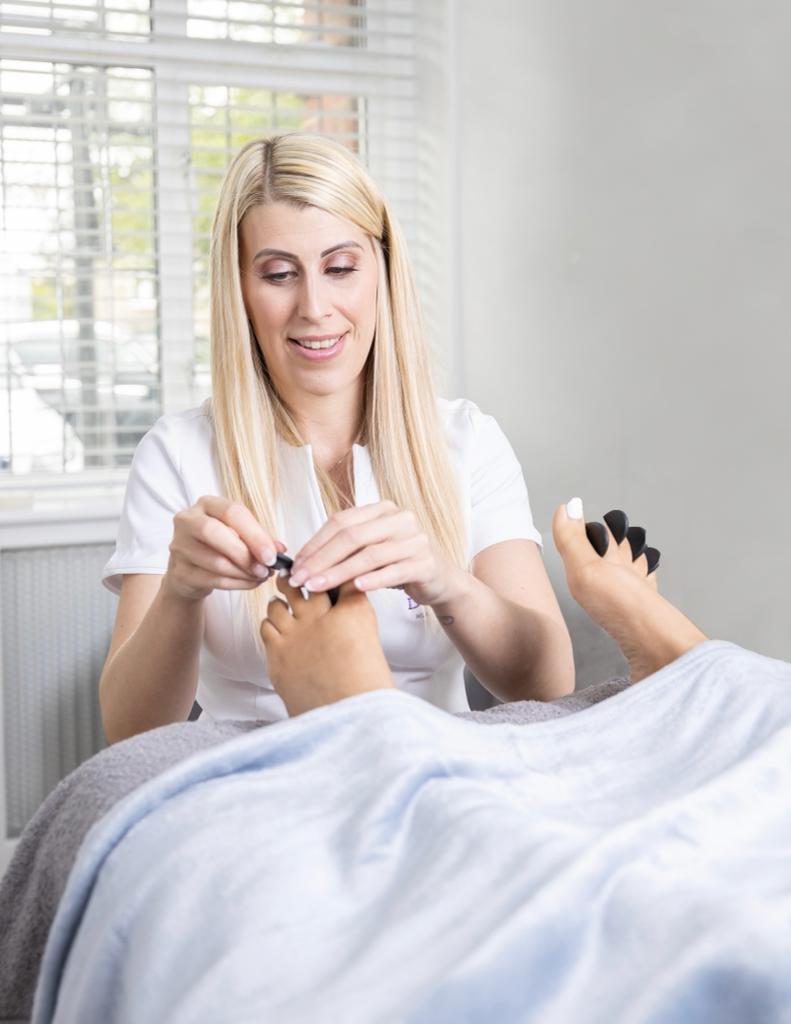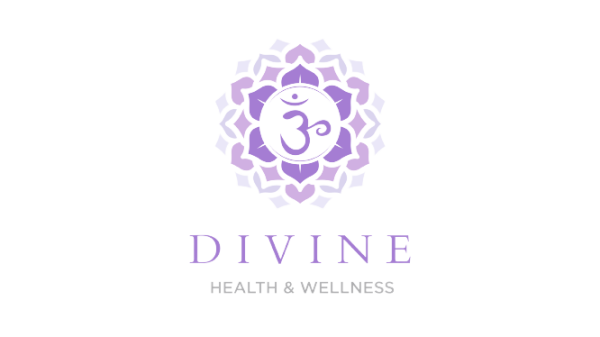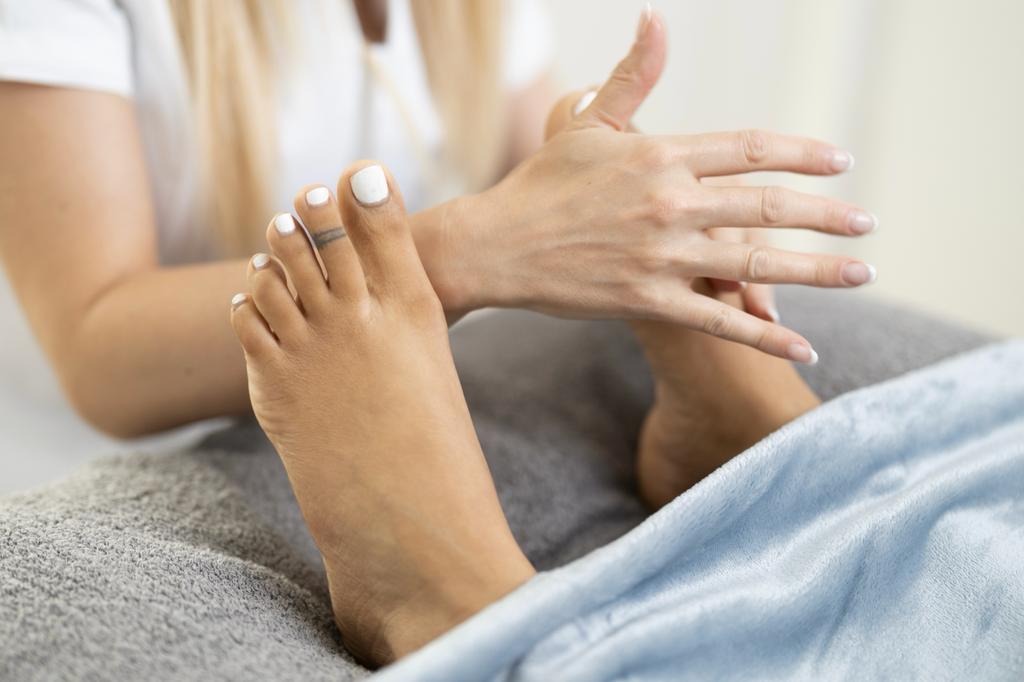
What Is Reflexology
Reflexology is a gentle, non-invasive complementary therapy that is suitable for all ages* and has many health benefits to aid in your wellbeing. The techniques used can bring a state of deep relaxation, boost mood and encourage the body’s own natural healing process.
The theory behind reflexology is that areas of your feet and face correspond to the organs and systems within the body. The application of pressure to areas on the face, feet or hands can help to alleviate stress, pain or discomfort by stimulating the energy pathways and restoring emotional, physical and spiritual balance within the body. This is done using the thumb, finger, hand massaging techniques, and crystal tools.
A Brief History of Reflexology
The roots of reflexology date back over 4000 years and have developed over time through many cultures. The earliest discovery dates back to the ancient Egyptians when a hieroglyphic mural was found in a pyramid depicting the practice of foot massage. The Chinese created acupressure, which like reflexology uses finger
and thumb pressure along meridian lines to encourage the body to self-heal. The Incas passed down their knowledge to the American Indians and in the 1890s, a German physician developed a technique called reflex massage, a practice used to heal people. It wasn’t until the 1900’s that zone therapy, another name for reflexology made its way to the west.
Modern reflexology as we know today developed in the early 20th century mainly due to the works of a physiotherapist called, Eunice Ingham, who discovered that pressure applied to specific points on the feet could
help to relieve pain and Dr William Fitzgerald, an ear, nose and throat surgeon. They are both considered to be the mother and father of reflexology
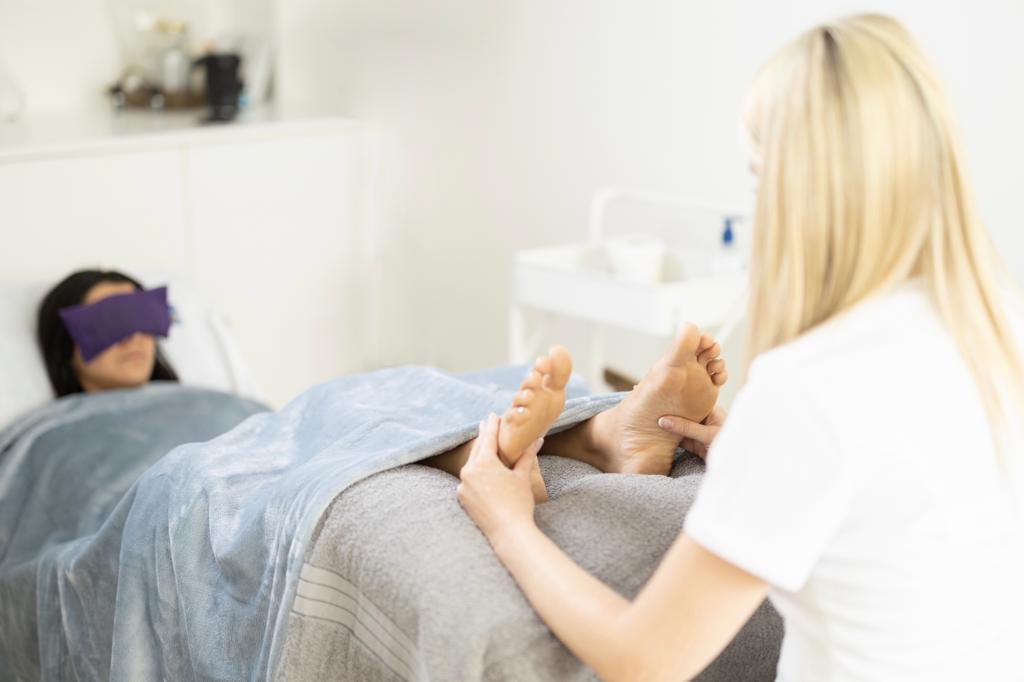
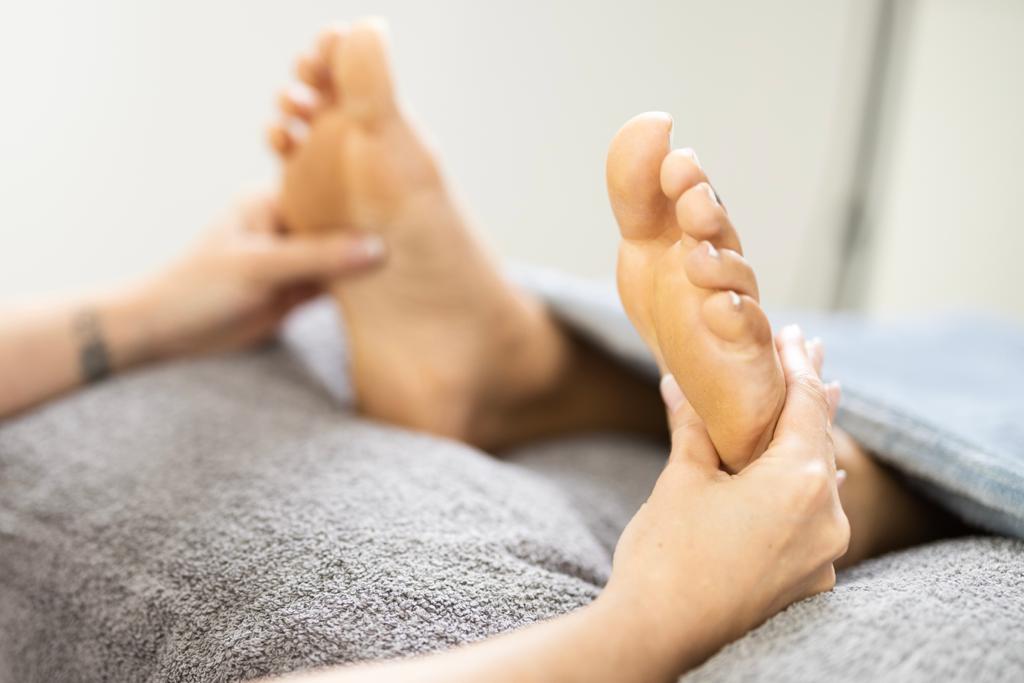
The benefits
Reflexology has great benefits and is said to relieve many ailments including:
- Stress
- Anxiety
- Sleep problems
- Fatigue
- Pain
- Pregnancy and postnatal symptoms
- Menopausal symptoms
- Menstrual symptoms
- Migraines & headaches
- Sinus issues
- Hormone imbalances
- Digestion
Will reflexology help me?
The best way to find out if it will work for you is to try it! Reflexology is a very individual treatment and my sessions are tailored to you as a whole, taking into account all physical and emotional factors that might be affecting you. After your first session you may find your tension is reduced and you are more relaxed. Your sleep, mood and wellbeing may have also improved. Some people report feeling tired, nauseous or tearful after a session. This is perfectly normal and part of the body’s healing process.
Most people find that a course of 4-6 sessions weekly or fortnightly is beneficial to start with, with monthly top-up sessions to maintain wellbeing thereafter.
